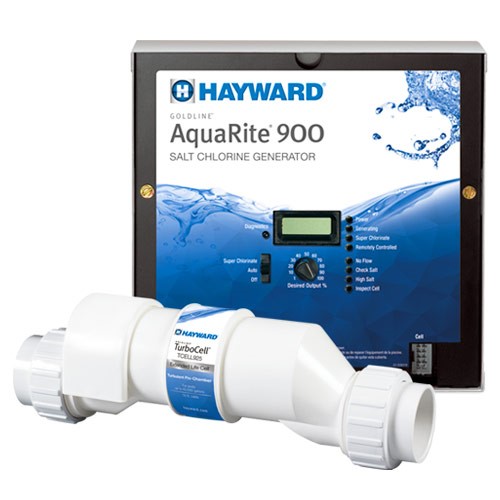Salt Pool Conversion

A Salt Pool Conversion means switching to a system that generates chlorine consistently and automatically, rather than adding it manually. A salt chlorine generator uses salt added to the water, breaking it down into chlorine, which disinfects your pool every time the pump runs. This system simplifies pool maintenance and provides ongoing protection against bacteria and algae.
How a Salt Pool Works
- Salt Chlorine Generation: Salt added to the pool water is split into sodium and chlorine atoms by the generator. Chlorine disinfects the pool, then recombines with sodium to form salt again. Some chlorine naturally dissipates into the atmosphere.
Benefits of a Salt Pool
- Continuous Chlorination: Salt pools maintain a consistent chlorine level, reducing bacteria and preventing algae growth more effectively than weekly chlorine treatments.
- Soft, Comfortable Water: Salt softens pool water, giving it a smooth, silky feel, making it more enjoyable for swimmers.
- Ideal for Hot Climates and Waterfront Properties: In hot weather, traditional chlorine can evaporate quickly, making pools susceptible to algae. Salt systems continually add chlorine, keeping your pool balanced and safe throughout the week.
Why Salt Systems Are Ideal for High-Chlorine Demand Pools
Properties near natural water sources are more prone to algae and bacteria due to airborne contaminants from nearby bodies of water. A salt system provides consistent chlorination, ensuring these high-demand pools stay clean, safe, and free of contaminants.
Salt Systems for Spas vs. Bromine
In hot tubs and spas, chlorine can evaporate faster due to high temperatures, making it hard to maintain safe levels with weekly treatments. Adding a salt system ensures a steady supply of chlorine, keeping spa water disinfected and safe.
Salt Systems and Water Chemistry
While a salt chlorine generator keeps chlorine levels stable, it does not balance other water chemistry elements like pH, alkalinity, or calcium. Regular checks and adjustments to these levels are still needed, ideally on a weekly or bi-weekly basis.
Salt Systems and Pool Automation
Salt systems can integrate with pool automation, allowing you to monitor and control chlorine levels remotely. This setup lets you receive text or email alerts if there’s an issue and adjust settings directly from a smartphone or tablet.
Installation Costs for Salt Systems
The cost of a salt system depends on the brand and features, with options that connect to automation systems often costing slightly more.
Curious About a Salt Pool Conversion for your Pool?
Contact Gulf Coast Pool Pros today to schedule a free consultation and learn more about how a salt pool conversion can make your pool maintenance simpler, safer, and more comfortable year-round.






